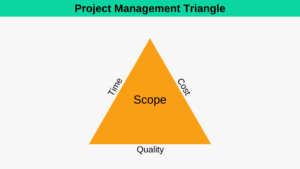The business case provides the reason any project has been started. It clarifies the key drivers for the project and puts them to paper, so that everyone involved in the project can understand the reason for undertaking the project.
Both the breath and depth of a particular business case will differ depending on the organizational culture in which it was produced. Some mature organizations will have stringent processes around not just how their business cases are structured, but also the process by which they are put together. Other organizations will have a less rigorous approach to their business cases, and in some organizations it is not uncommon to start and run projects with no business case in place.
For example, in one organization it might be popular to include intangible benefits within the business case, such as partner relationship improvements or improved employee morale, whereas another organizational culture might consider this information superfluous and only focus on the key financial numbers.
In my opinion, business cases exist for two core reasons.
1. To help management make decisions
Decision makers need to prioritize projects relative to each other and make trade offs based on a variety of factors. Each business case should contain the information to enable these decision makers to make these decisions quickly and easily.
2. To Direct the Team
Simply put, in order to make the right decisions day after day whilst working on the project, the team needs to understand why the project is being undertaken. For this reason I believe it’s also important for the project manager to be intimately involved in the creation of the business case, to convey and represent the business case daily to the project team.
What’s a Project Manager to Do
What about the third situation outlined above, where there is no business case? Perhaps the project manager has been told to “just do it” by their boss (of even JFDI (I’ll leave you to work out what this stands for!)). Perhaps the project manager is working for a very small start-up business where execution speed is king and it seems pointless and cumbersome to build a business case. In these situations what should a project manager do?
In these situations, usually the first reason for the business case outlined above has been removed – management does no need help prioritizing, perhaps because in a small start-up there is only one project running at any one time. But the second reason still exists – to direct the team. For this reason I don’t believe it’s acceptable under any circumstance to begin a project without some form of business case, even if the business case is just four bullet points written on a whiteboard in full view of the project team.
<rant start>
Project managers need to remember they have been employed to add value. To add value they need to deliver what the business wants. To know what the business wants there must be some form of business case. They therefore need to cajole their boss by any means necessary to help them create the business case, even if it’s just a couple of bullet points. Project managers as a profession need to stand firm and not even contemplate starting any project unless some form of business case exists! Remember that as a profession, project managers are employed to add value, not simple to do as they’re told.
</rant over>










